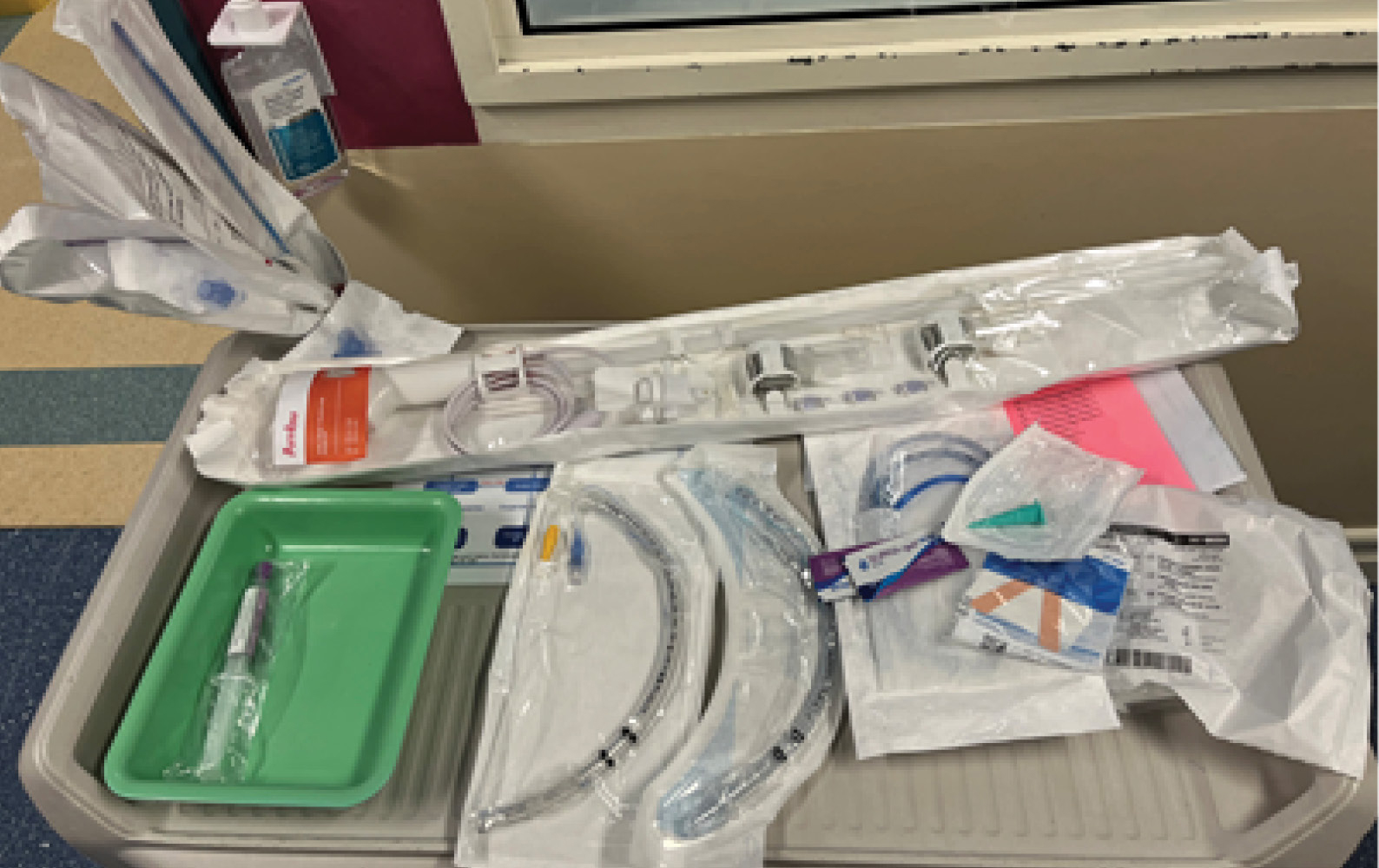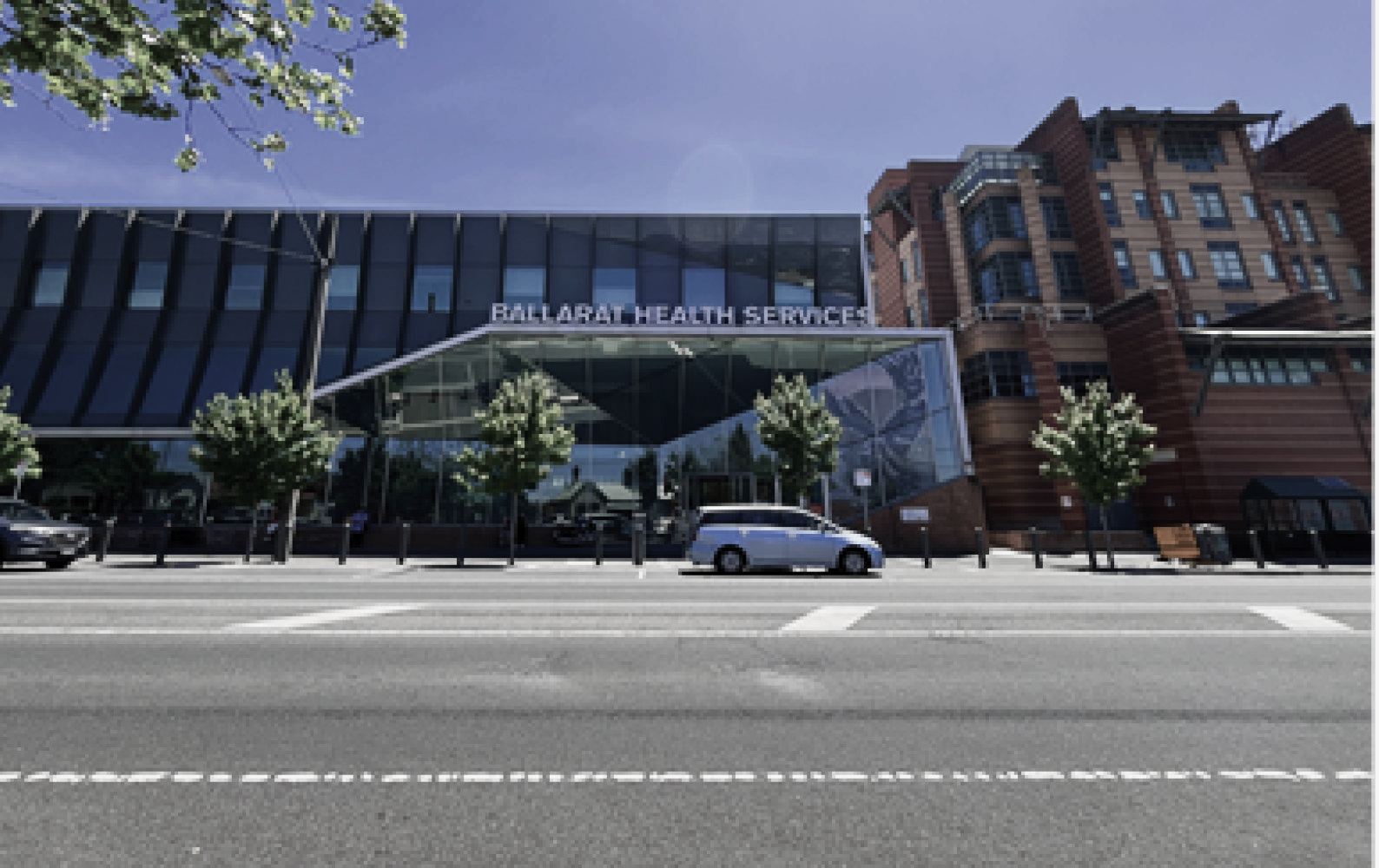Future Focus: Long Nguyen
Long Nguyen, a penultimate medical student at the University of Melbourne, recently concluded his elective at Ballarat Base Hospital.
Throughout his time in the Intensive Care Unit (ICU), Long experienced both the highs and lows of medical care. This elective proved to be enriching and eye-opening for him, solidifying his aspiration to pursue a career in intensive care.
Holistic care
What I have enjoyed the most about intensive care is the closeness of human interactions and the sense of intimacy you have with the patients and your colleagues. If we consider holistic care as the cornerstone of medicine, intensive care, in my humble opinion, stands out as one of the few specialties where you can genuinely practice it every day, as an inherent part of your job description. Moreover, intensive care presents a diverse range of tasks, encompassing procedural skills, managing acute deterioration, and handling emergencies. Simultaneously, it requires you to uphold an active and comprehensive knowledge base, drawing upon virtually everything you've learned. Additionally, it asks you to delve deeper into the mechanistic inner-workings of the human body, of the myriad machines we utilise to support that body and the human interactions as you work together with so many other healthcare professionals on a daily basis to care for your patients and console their loved ones. I have found all my experiences in the sphere of intensive care incredibly eye-opening and enriching, and as such I truly appreciated the opportunity to embark on a two-week elective placement in the ICU at Ballarat Base Hospital at the beginning of 2024.
Resource challenges
At the time of my placement, the ICU was still sharing its beds with the Coronary Care Unit (CCU), with a total combined capacity of ten beds. By contrast, the ICU at Royal Melbourne Hospital has four ‘pods’, each having ten beds. Given the constraints on resources, extensive administrative navigation and negotiation were necessary to secure an adequate number of beds for patients. There were days when there were bed requests by the Emergency Department (ED) or the ward, but we didn’t have the space to admit these patients. This created a backlog with beds in the ED which unfortunately affected its functioning, while our staff were pulled away from the ICU to help monitor these patients around the hospital. I was very pleased to learn later that the entire hospital is undergoing a huge transformation planned to be completed in 2027, including a brand-new ICU. This provided me with the opportunity to observe decision-making around the prioritisation of patients, direction of care, and assessment for discharge when the resources were limited and you were under pressure from all directions.
Resources aside, the team operated with a flat hierarchical structure, fostering a close-knit and familial environment. Everyone was incredibly friendly, supportive, open and possessed a great sense of humour. Despite the tumultuous change of staff during this time as residents and registrars moved on to their next job or training post, everyone was still super helpful and generous in spending their time teaching, supervising and giving me the opportunity to examine patients and perform procedures. What really surprised me was how internationally diverse the doctor workforce was. I met an ex-anaesthetist from Brazil who now worked as a locum doctor, an Australian resident who competed his medical school in Ireland, a Canadian registrar who completed his medical school in Australia and a consultant originally from Scotland, making-up more than half of the doctor cohort who supervised and taught me during these two weeks.
The journey to becoming a doctor
These encounters left a profound impact on me, highlighting the notable contribution of internationally trained doctors and international medical students in carrying a substantial workload within the healthcare system in regional and rural areas. During my time working as a pharmacist in rural South Australia, I was aware of this situation but working closely with them during this elective, and listening to their stories gave me a very different, perhaps more personal, perspective and a desire to be able to somehow support and do more for them. I observed a fragmented training process and a deficiency in continuous work and training opportunities for individuals aspiring to pursue a career in intensive care. Having to move every year or two to change jobs and chase after training posts around the country is accepted as the rite of passage and is perhaps welcomed by younger medical students or doctors with fewer relationship or family commitments; however, such a transient, almost nomadic lifestyle is quite challenging for those with a family, house and mortgage.
Conclusion
I would wholeheartedly encourage fellow students to explore and seize such opportunities if their circumstances permit. Besides the standard IV cannulation, venepuncture and patient examination, I was taught and supervised in US-guided IV cannulation, assisted intubation and extubation, observed central line insertion, bronchoscopy and death certification, learnt in greater detail the principles of ventilatory and vasopressive support, and worked closely with nurses, pharmacists and dietitians.
I firmly believe that consistent exposure and repeated hands-on practice contribute significantly to building both competency and confidence in any field. This opportunity has been transformative for me, evolving from a state of feeling overwhelmed by the array of machines, tubes, and drugs in the ICU to now being much more comfortable, confident, and at home in the realm of intensive care.
Finally, I must express gratitude to the BOQ Specialist Future Focus Grant, without which this adventure would not have been feasible. The grant played a pivotal role in covering essential expenses such as fuel, car hire, food, accommodation, and even facilitated a small farewell/thank you gathering for my team.
 Facebook
Facebook
Like and follow us on Facebook to keep up to date with all our student offers, events, competitions and more.